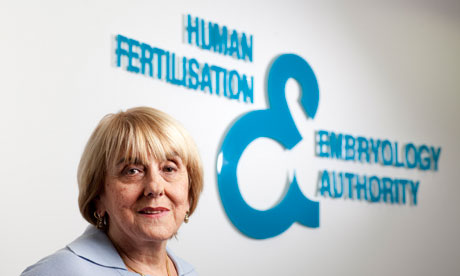Should This Woman Be Allowed To Keep Her Dead Husband's Sperm?
A woman has begun a legal battle to prevent her dead husband's frozen sperm from being destroyed. Should she be allowed to keep it?
28-year-old Beth Warren from the UK is in the midst of an extraordinary legal battle to prevent her dead husband’s sperm from being destroyed
Beth has been told by the Human Fertilisation and Embryology Authority (HFEA) that the sperm cannot be stored beyond April 2015.
Her husband, Warren Brewer, a ski instructor, died of a brain tumour at the age of 32 in February 2012.
telegraph.co.ukHis sperm was stored before treatment, and he made it clear his wife should be allowed to use it posthumously.
dailymail.co.ukBut Mrs Warren, who is also struggling to cope with the loss of her brother Edward in a car accident just two months before her husband died, said her “enormous feelings of loss” and financial insecurity have left her unwilling to go ahead with fertility treatment immediately.
The 28-year-old has been told she risks missing her chance to conceive Mr Brewer’s child unless she starts IVF treatment next month because under the current rules his sperm store will be destroyed in April 2015.
telegraph.co.ukThe couple, who were together for 8 years, married in a hospice 6 weeks before his death. She subsequently changed her surname to Warren. She says:
"I understand that it's a huge decision to have a child who will never meet their father, " said Mrs Warren, who lives in Birmingham.
"I cannot make that choice now and need more time to build my life back. I may never go ahead with treatment but I want to have the freedom to decide once I am no longer grieving."
dailymail.co.ukBeth Warren plans to take her case to the High Court to fight for a change in the rules.
Image via telegraph.co.uk"My brother died in a car accident just weeks before my husband's death, so there has been a huge amount to cope with."
telegraph.co.ukBeth unfortunately was unaware that because of a regulation passed in 2009, there is now a strict term limit on how long such samples can be kept in cold storage
Current rules allow for sperm to stored for up to 55 years but consent must be renewed every ten years. Patients who die obviously cannot renew their consent and the term limit is much shorter.
care2.comHer husband’s last consent form actually lapsed earlier this year but the authority has been able to use its powers to extend the deadline. Due to the unambiguous nature of the regulations involved however, it now has run out of scope to help Mrs Warren.
In a statement released to Beth, Human Fertilisation and Embryology Authority regulator has said:
"The HFEA has every sympathy with Mrs Warren and the tragic circumstance in which she finds herself. We have been in discussions with Mrs Warren’s solicitors for some time and each time new information has been presented to us, we have reconsidered the legal situation in as responsive a way as possible."
"However, the law on the storage of gametes is clear and the HFEA has no discretion to extend the storage period beyond that to which her husband gave written consent."
care2.comHer lawyer, James Lawford Davies, whose firm is not charging Mrs Warren to represent her, said the 2009 regulations created injustice
"Common-sense dictates that she should be allowed time to recover from the loss of her husband and brother and not be forced into making such an important reproductive choice at this point in her life."
Mr Lawford Davies said there were a number of inconsistencies about the regulations. The sperm has to be used by April 2015, but if it was thawed and used to create embryos, these could be stored for a further seven years.
telegraph.co.ukThe time limit also means that Mrs Warren could use the sperm to create one child but not a second. There is also no restriction on the sperm being exported, which would mean Mrs Warren could be treated abroad in the future, but not in the UK.
dailymail.co.ukBeth, who in a legal case that will go before the Family Division of the high court early next year, is not arguing that she will definitely use the sample.
She concedes that she may in the future meet someone else and choose to have a child with them instead. Also, she believes it is a very weighty decision to have any child from that sample because the child will never meet his or her father, a decision Warren says she cannot be made to rush.
mirror.co.ukShe also argues that it is inhumane for the UK’s regulations to in effect pressure her into having her deceased husband’s child or lose that chance altogether simply because of term limits that have no particular scientific reasoning behind them.
care2.comIn a broader sense, this case speaks to the difficult subject of posthumous (after-death) conception and bioethics, which is the driving force behind such regulations.
Like most countries, the UK offers a legal framework that treats the issue conservatively and so imposes strict time limits to guard against any potential ethical violations — for instance, a sample being used that was never meant to outlive the person who gave it.
Yet, in Beth’s case the answer to this quandary is fairly simple: as mentioned above, her husband signed several consent forms empowering her to conceive his child in the eventuality of his death.
care2.comBeth is fully aware of the ethical implications of bringing a child into the world without its father and is in fact being quite reasonable in asking for more time to decide the issue.






